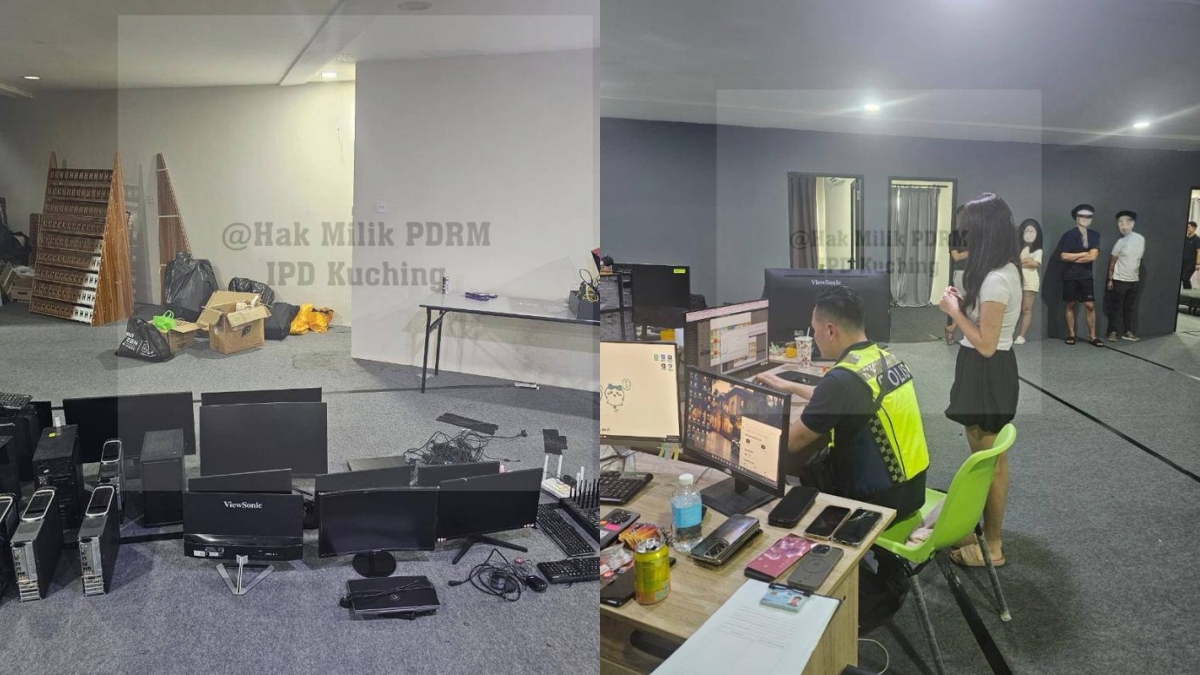Malaysian police say Chinese teen staged his own kidnapping with NUS student accomplice
Malaysian authorities say an alleged kidnapping of an 18-year-old Chinese student in Johor was staged. The youth, enrolled at Singapore’s SIM Global Education, and a 23-year-old NUS student have been charged with attempted fraud after demanding S$621,500 ransom from his parents in Dubai.

- An alleged kidnapping of Chinese student Ye Yingxi in Malaysia has been exposed as a hoax staged with accomplice Zhang Runbao, an NUS student.
- The duo demanded up to 3.5m yuan (S$621,500) in ransom from Ye’s parents, who live in Dubai.
- Both suspects have been charged with attempted fraud in Kuala Lumpur, and their schools in Singapore are monitoring proceedings.
A case initially investigated as a violent abduction of a Chinese teenager in Malaysia has taken a dramatic turn, with police now alleging that the incident was fabricated.
The teenager, 18-year-old Ye Yingxi, a student at SIM Global Education in Singapore, is accused of conspiring with a 23-year-old accomplice to stage his own kidnapping in Johor.
Alleged kidnapping
Ye, who had been studying in Singapore since October 2024, travelled to Johor on 30 April 2025.
Days later, his parents—businesspeople based in Dubai—received disturbing footage showing him bound, gagged, and apparently assaulted.
The kidnappers initially demanded 500,000 yuan (S$88,800), later escalating the ransom to 3.5 million yuan (S$621,500). Threats included killing the teenager and selling his organs if payment was not made.
According to China Press, the teen’s parents, surnamed Ye and Cheng, received a video call from their son’s QQ account on 2 May. The footage showed him stripped to his underwear, tied to a chair, with water forced into his mouth as he pleaded for help. Voices of alleged abductors could also be heard.
Hours later, the ransom demand was increased to 3 million yuan (S$532,700), accompanied by another video showing the youth being “beaten”.
The parents attempted to transfer 100,000 yuan (S$17,800) via Alipay, but the kidnappers rejected the payment. Alarmed, they flew to Singapore immediately and discovered that their son had travelled to Malaysia. They then filed a report with the Malaysian police.
Police reveal staged hoax
On 13 May, Sin Chew Daily reported that Malaysian investigators determined the kidnapping had been staged.
Authorities found that Ye had conspired with 23-year-old Zhang Runbao, a student at the National University of Singapore (NUS), to carry out the scheme.
Initial doubts arose when investigators noted inconsistencies in Ye’s account and a lack of detail about how he was abducted. Reports later suggested he had been playing online games in Singapore the day before travelling to Johor.
The alleged plot began to unravel when Zhang was arrested at Penang International Airport on 4 May.
Ye was later located in Baling, Kedah, with only a leg injury. He claimed he had been released and sought help at a police station to contact his grandfather in China. However, his statements during questioning raised further suspicions.
Attempted fraud charges
Both Ye and Zhang have since been charged with attempted fraud in a Kuala Lumpur court.
The case, initially treated with urgency given the parents’ frantic efforts to save their son, has shifted focus to determining the extent of planning behind the hoax.
Authorities have not ruled out the possibility of additional suspects being involved.
Institutional responses
The scandal has drawn the attention of both educational institutions linked to the suspects.
SIM Global Education confirmed it is aware of the case and will take disciplinary action under its code of conduct once court proceedings conclude. “Further assessment will be made after the verdict,” the institution told 8world News.
NUS similarly acknowledged the case, stating it is aware a student has been charged in Malaysia and is monitoring developments closely.
Family’s role and international dimension
The case attracted significant attention in China and Singapore due to the extreme nature of the staged ransom demands, including threats of organ trafficking.
The teen’s parents, a 43-year-old father and 40-year-old mother, had been based in Dubai where they run a business. They acted immediately upon receiving the threats, flying to Singapore and then to Malaysia to assist police investigations.
Their cooperation was crucial in tracing Ye’s movements and uncovering the inconsistencies that led investigators to suspect the abduction had been faked.
Impact of fabricated cases
Malaysian police noted that staged cases of kidnapping not only waste significant investigative resources but also cause unnecessary distress to families and communities.
Authorities emphasised that false reports of abductions are treated seriously, as they can divert attention from genuine cases requiring urgent intervention.
If convicted under attempted fraud charges, the suspects could face substantial penalties under Malaysian law.
Wider concerns
The case also raises broader questions about the influence of online environments on young adults. Reports suggest Ye may have been heavily involved in online gaming, though no direct link has yet been confirmed.
Observers note that ransom hoaxes exploiting fears of organ trafficking are not uncommon, but the involvement of students from reputable Singapore institutions has amplified concerns.
The incident underscores the challenges faced by authorities in verifying cross-border cases involving international students and digital communication platforms.
Next steps
Court proceedings in Kuala Lumpur will determine the severity of penalties faced by Ye and Zhang. Investigations remain open, with police considering whether additional individuals were involved in orchestrating the hoax.
Both Singapore institutions involved have indicated that disciplinary action will be taken once the courts deliver their verdicts.
For now, the focus remains on the legal process and on mitigating the impact of the incident on the broader international student community.







